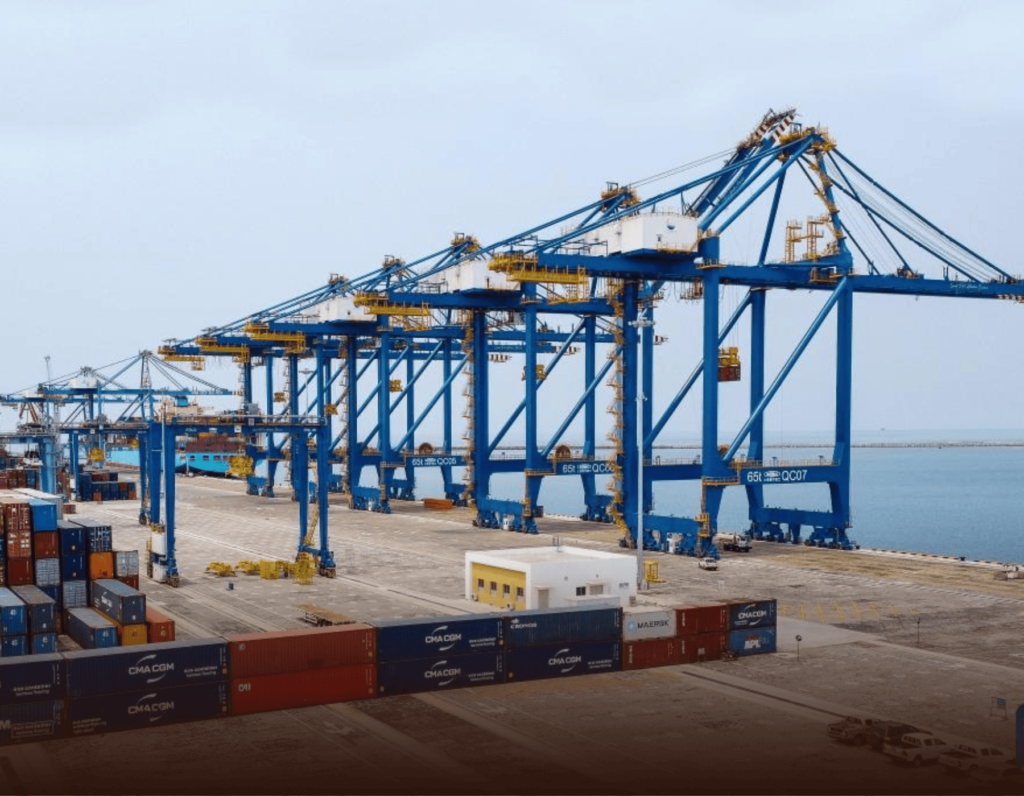Chinese company hands over the second phase of the Kribi Deep Seaport to Cameroon, marking a significant milestone in the nation’s infrastructure development and regional trade ambitions. The port, situated in the southern town of Kribi, now stands as the largest in Central Africa, capable of accommodating ultra-large container ships, including the 400-meter-long MSC Turkiye with a capacity of 24,346 TEU.
Philippe Labonne, chairman of Africa Global Logistics, highlighted the port’s enhanced capabilities, noting that Kribi is now among the few ports in sub-Saharan Africa equipped to handle vessels of such magnitude. This development positions Cameroon as a pivotal maritime hub in the Gulf of Guinea.
The transformation of Kribi from a modest fishing village into a logistical powerhouse began in 2011 with the initiation of the deep-sea port project by China Harbour Engineering Company (CHEC). Spanning 26,000 hectares, the project has been instrumental in reshaping the local economy and infrastructure.
The port’s strategic significance is underscored by its ability to dock 100,000-ton ships, a feat previously unattainable due to the limitations of Cameroon’s main port in Douala. Eric Hermann Defo Fotso, an engineer involved in the project, emphasized the port’s role in facilitating both imports and exports, thereby boosting the nation’s trade capacity.
Beyond its maritime functions, the Kribi Deep Seaport has catalyzed industrial growth in the region. The establishment of a cocoa factory, two cement plants, and a wood processing company in proximity to the port exemplifies the influx of external investment and the port’s role in Cameroon’s industrialization efforts.
Complementing the port’s development, CHEC constructed the Kribi-Lolabe highway, enhancing connectivity between the seaport and major cities across Cameroon. Emmanuel Nganou Djoumessi, Cameroon’s Minister of Public Works, noted that the highway facilitates the movement of personnel and goods, thereby promoting industrialization.
The port’s impact extends to nearby communities such as Ndoumale and Bagyeli. In Bagyeli, the installation of solar panels has improved daily life, with residents like Marie Belle Ndabouane noting the benefits of electricity in their homes. In Ndoumale, infrastructure improvements include roads, bridges, and a drinking water treatment plant capable of producing 7,000 cubic meters of water per day. Additionally, a six-classroom primary school, converted from former workers’ accommodations, now serves local children, providing access to education that was previously unavailable.
Chen Ze, general manager of CHEC Central Africa Division, described the Kribi Deep Seaport as a flagship project of China-Cameroon cooperation and a model for China-Africa collaboration under the Belt and Road Initiative. The port’s construction involved collaboration among professionals from over a dozen countries, fostering international partnerships and contributing to regional development.




